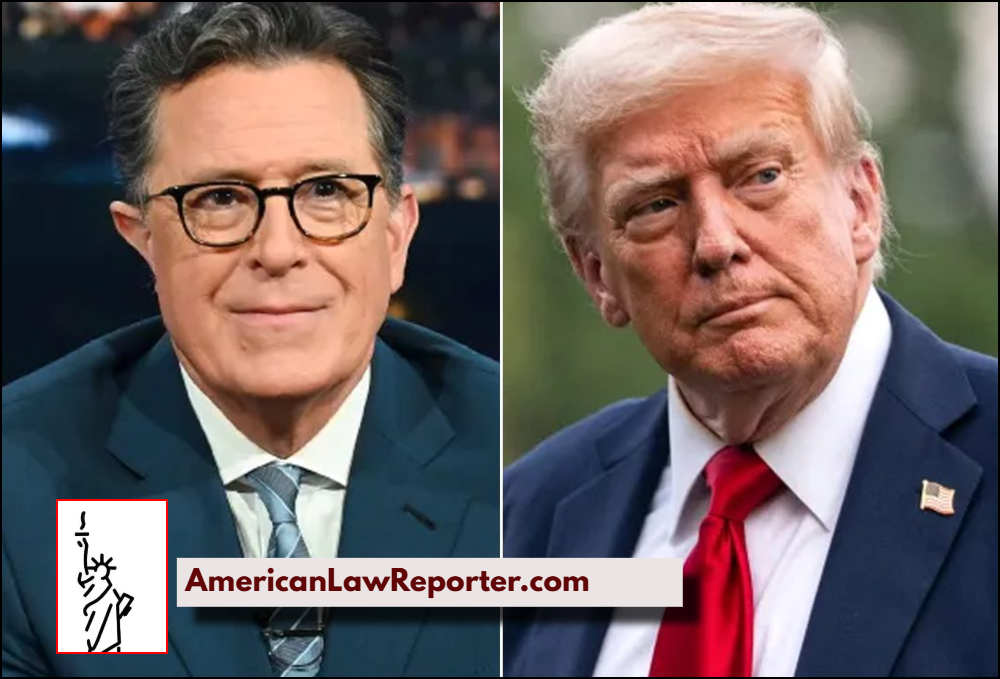The abrupt cancellation of The Late Show with Stephen Colbert—just three days after the host publicly accused CBS’ parent company Paramount Global of giving President Donald Trump a “big, fat bribe”—is fueling serious legal and political scrutiny, including from sitting U.S. senators.
The controversy erupted after Colbert criticized Paramount for agreeing to a $16 million settlement with President Trump related to a legal dispute over a 2024 60 Minutes interview with then-Democratic presidential candidate Kamala Harris.
Trump had claimed the interview was deceptively edited to favor Harris and launched legal action that Paramount ultimately settled. The company did not admit wrongdoing but agreed to make a multimillion-dollar donation to Trump’s future presidential library.
“Complicated financial settlements with a sitting government official have a technical name in legal circles: it’s ‘big, fat bribe,’” Colbert said during his Late Show monologue on July 14.
Just three days later, during the July 17 taping, Colbert announced that his show—CBS’ crown jewel in late night for nearly a decade—was being canceled.
CBS quickly issued a statement calling the cancellation “purely a financial decision,” citing a “challenging backdrop in late night.” The network added that Colbert’s show has been the “#1 in late night for nine straight seasons,” averaging nearly 2.5 million viewers in Q2 of 2025, according to The Hill.
Political Fallout and Legal Concerns
The timing has sparked concerns that Colbert’s on-air criticism may have played a role in the show’s cancellation—especially given the political and regulatory context surrounding Paramount’s ongoing attempt to merge with Skydance Media.
The merger will require approval from the Trump administration’s Department of Justice and Federal Trade Commission, prompting speculation about corporate appeasement.
Senator Elizabeth Warren (D-Mass.) posted on X, formerly Twitter:
“CBS canceled Colbert’s show just THREE DAYS after Colbert called out CBS parent company Paramount for its $16M settlement with Trump – a deal that looks like bribery. America deserves to know if his show was canceled for political reasons.”
Senator Adam Schiff (D-Calif.), who appeared on The Late Show the night Colbert made his announcement, echoed the concern, stating:
“If Paramount and CBS ended the Late Show for political reasons, the public deserves to know. And deserves better.”
Legal Implications
1. First Amendment Protections
If Colbert’s show was canceled in direct response to protected speech critical of a government official, it raises serious concerns under the First Amendment. While CBS is a private entity and not subject to First Amendment constraints in the same way as a government actor, collusion or pressure from the government could trigger constitutional scrutiny under Bantam Books v. Sullivan, 372 U.S. 58 (1963), which prohibits indirect government censorship through private intermediaries.
2. Campaign Finance and Ethics
Legal experts are also raising red flags about Paramount’s $16 million “settlement,” particularly if the money is earmarked for Trump’s presidential library during an active campaign. If the donation is perceived as currying favor with a sitting president to secure regulatory approval, it may violate provisions of the Federal Election Campaign Act (52 U.S.C. § 30101 et seq.) or the Foreign Corrupt Practices Act (15 U.S.C. §§ 78dd-1), if international corporate interests are involved in the merger.
3. Shareholder Risk and Fiduciary Duty
Paramount’s leadership could also face shareholder lawsuits if the donation and resulting reputational damage—including backlash over Colbert’s cancellation—are seen as violating fiduciary duties under corporate governance laws. Delaware courts have long held in Caremark decisions that directors must act in the best interests of the company and disclose material risks to shareholders.
Trump’s Reaction
President Trump responded to the cancellation with celebration on Truth Social:
“I absolutely love that Colbert got fired. I hear Jimmy Kimmel is next.”
The statement, while in keeping with Trump’s frequent targeting of media personalities, only fueled suspicions that political pressure may have influenced CBS’ timing.
Conclusion
While CBS insists that the cancellation of The Late Show is unrelated to Colbert’s criticisms or political content, legal and political observers say the timing—so close to a potentially problematic corporate settlement with a sitting president—demands further investigation.
If even the appearance of political retaliation or improper influence exists, Paramount and CBS may face mounting legal and public scrutiny in the weeks to come.

